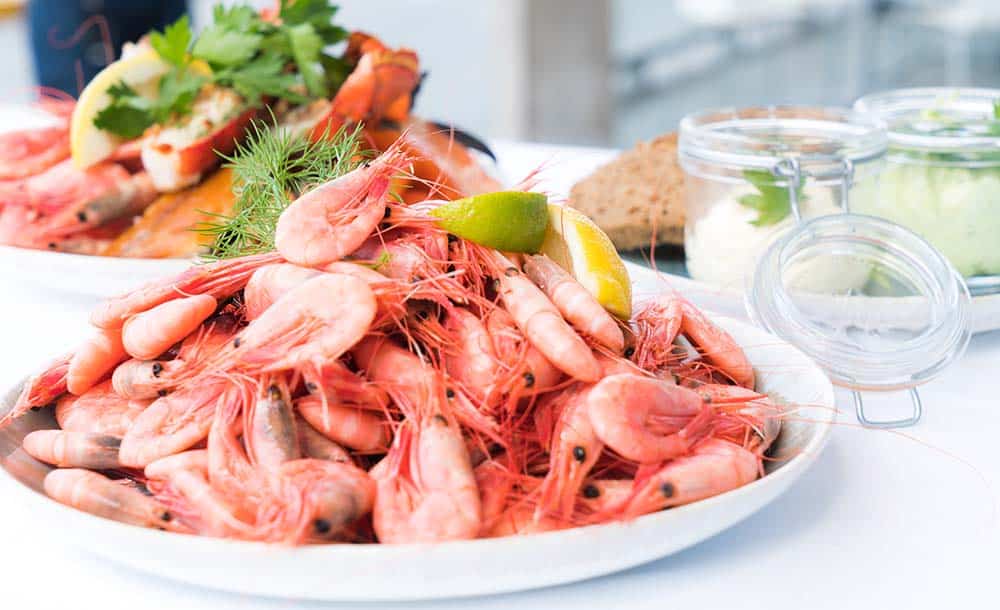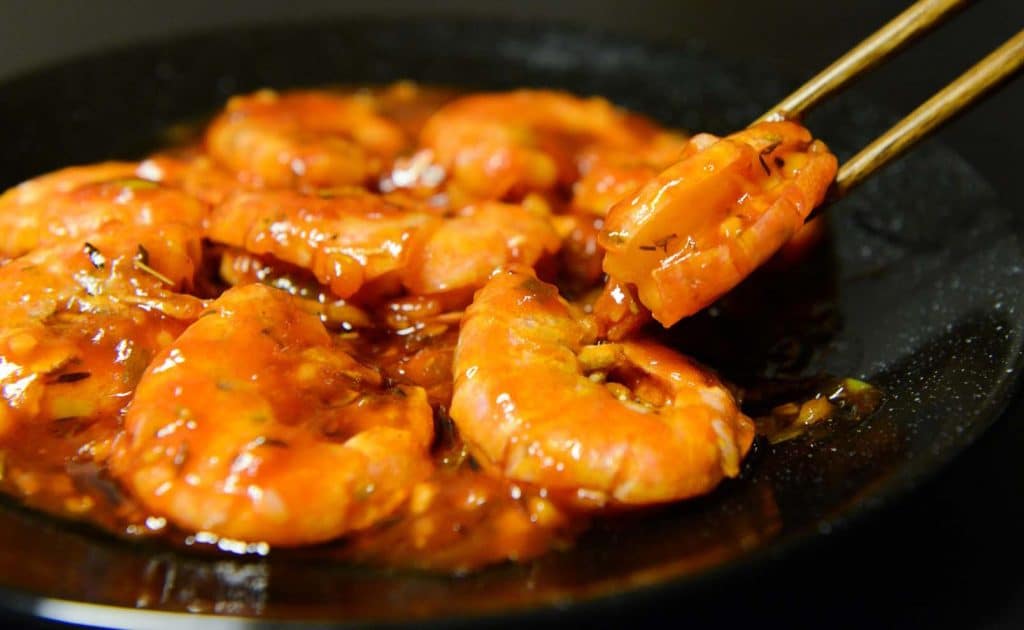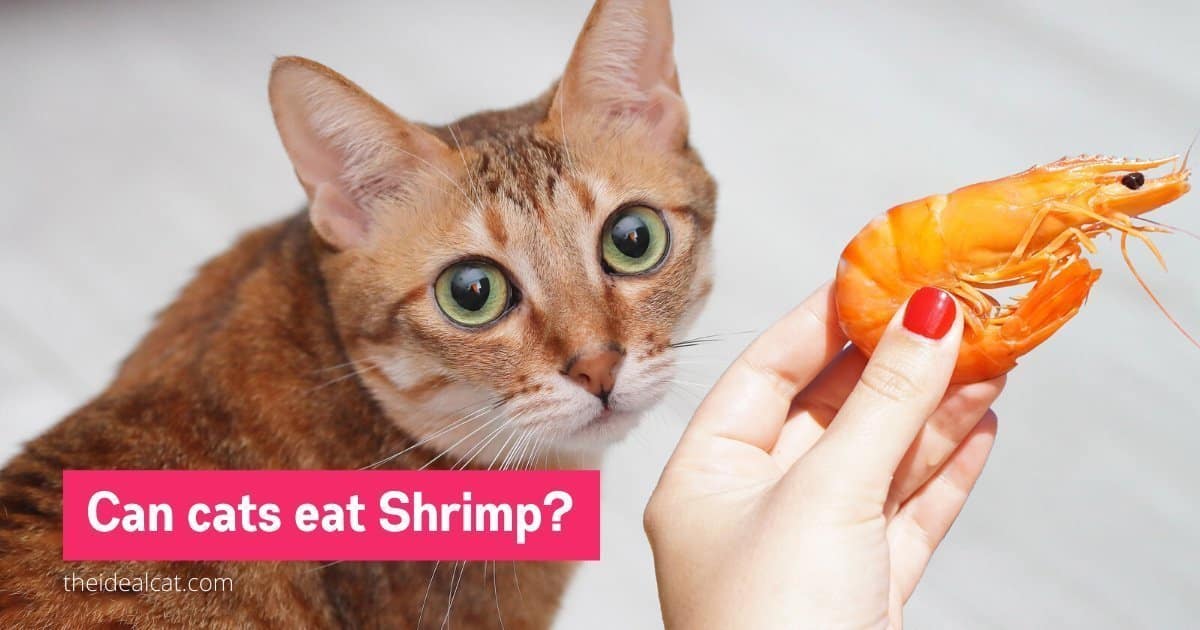Your feline friend has shown interest in shrimps? Then you are probably wondering – can my cat eat shrimp, be it raw or cooked?
Well, since cats love seafood and do well on it, you will probably think that shrimps are likewise okay for them. Apart from that, shrimps are a great source of meat and proteins, so they should be a great treat for cats, right?
While cats can indeed eat shrimp, things are a little more complicated than you may be thinking. In this post, let’s talk about everything you should know about shrimp and cat health.
Can cats eat shrimp?
Short answer – Yes, cats can eat shrimp. Shrimp is safe for cats. Shrimp is extremely low on mercury, and most cats seem to love their taste and smell as well.
However, the safety of shrimp largely depends on how it has been prepared. Besides, shrimp contains a few substances that aren’t healthy in large amounts, which we’ll talk about later.
Can cats eat raw shrimp?

Raw shrimp can be safe for consumption for cats, but this depends on its source. The best option would be fresh shrimps caught in the wild. You shouldn’t give raw shrimp to your cat if you don’t 100% know its origin.
Part of the reason for this is that some shrimp sold as wild is actually farm-raised. Farm-raised shrimp may have been exposed to fungicides, antibiotics, and other chemicals that may be toxic to your feline friend.
Even if you know the source of raw shrimp, ensure that you have thoroughly cleaned the shrimp before serving. Make sure that you’ve removed the digestive tract of the shrimp as well – this is to ensure that the remains of food that the shrimp may have consumed do not harm your kitty.
Can cats eat cooked shrimp?

When cooked properly, shrimp is ideal for cats. You could feed your cat even on farm-raised cooked shrimp because the heat of cooking will destroy most of the harmful substances contained in it. Likewise, any bacteria that may be lurking on the shrimp will most likely be killed as well.
With that said, keep in mind that shrimp should be cooked plain without any salt, spices, or seasonings. Keep oil at a minimum as well. These ingredients may cause digestive issues in your cat.
Don’t also forget to thoroughly clean the shrimp and remove its digestive tract before cooking.
Can Cats Eat Shrimp Shells, Tails, Legs, and Heads?
Shrimp parts are safe for your cat if they’ve been properly cooked – with no seasonings, salt, and with little oil. Heads, tails, legs, and shells may also be served raw, given that you know their source and that they have been thoroughly cleaned, as outlined earlier.
Frozen Shrimp
Frozen shrimp shouldn’t be given to cats. This is because pre-packaged frozen shrimp is high in sodium. Sodium is added to food as a preservative, and shrimp is high in sodium as it is. Besides, canned shrimp often contains seasonings.
Shrimp Chips
Unless you are making shrimp chips at home, your cat should not eat chips from shrimp. Shrimp chips are junk food and are as harmful as any other junk food. High in fats and starch, shrimp chips are unhealthy for humans, let alone cats.
If you want to feed your cat on homemade shrimp chips, then be sure to add no seasonings and keep the oil at a minimum.
Is Shrimp Safe For Cats To Eat?
So it turns out that cats can indeed eat shrimp in some forms. But should you give shrimp to your cat? And should shrimp become a long-term part of your cat’s diet?
The answer is that shrimp should be no more than an occasional treat for your cat, perhaps two times a week. Even though shrimps are rich in omega-3 fats, vitamin B12, and selenium, they are also high in sodium and cholesterol. These substances may cause weight gain and digestive issues in your cat.
Apart from that, know that some cats may be allergic to shrimp. If you aren’t sure whether your cat is allergic to it or not, we suggest that you consult your vet first.
In the end, shrimp certainly can’t serve as a full-time meal in a cat diet. But if your feline companion seems to love shrimp, then it might be a great treat to have occasionally.
Why do cats love shrimp?
Cats generally love seafood, and this affection seems to extend to shrimp as well. With that said, even though cats are quite picky with food, they may consume too much shrimp for their good if given access to it.
How much should I give shrimp to my cat?
This depends on the size of your cat. Large breeds weighing 12-15 pounds will probably digest full regular shrimp, and they may also digest jumbo-sized shrimps. Smaller breeds weighing from 5 to 10 pounds should be given up to a regular-sized shrimp.
You don’t need to give whole shrimps to your cat – you may cut the shrimp and serve it in parts.
Can you give shrimp to your kitten?
Yes, shrimp is no more dangerous to kittens than it is to cats. However, since kittens are growing, you probably shouldn’t focus too much on shrimp and give them other cat food more suitable for a young cat. Consult your vet for food recommendations for kittens.
What are the signs when cats badly react to shrimp?
If your cat has a bad reaction to shrimp, then you will probably see signs of digestive problems, such as vomiting or constipation/diarrhea. If anything in your cat’s behavior is not normal, then you should take your pet to a vet.
How to properly prepare shrimp for serving?
- Remove the vein, head, and tail of the shrimp.
- Remove the shrimp’s digestive tract. You can gain easy access to the digestive tract by butterflying the shrimp.
- Thoroughly clean the shrimp. Clean the tail and head as well if you will be giving them to your cat.
- Cook the shrimp with no seasonings, salt, and with a minimal amount of oil.
Conclusion
Whether it is shrimp or anything else, always be careful about giving a ‘random food item’ to your cat. Cats are curious by nature, and it is very likely that they will want to taste most of your food items. While a moderate level of shrimp is fine, it is better to be safe than being sorry when it comes to our furry friends.

Hello and welcome to The Ideal Cat!
We are some passionate cat owners from different professions. We love our cats and have a lot of experience in how to care for our pets. We are incredibly excited to share our knowledge, experience, and research with you. So you can take good care of your loving cat. We will answer most of the common questions about owning cats, taking care of them, etc. If you have any question contact with us. Thanks for visiting! Enjoy the content.
